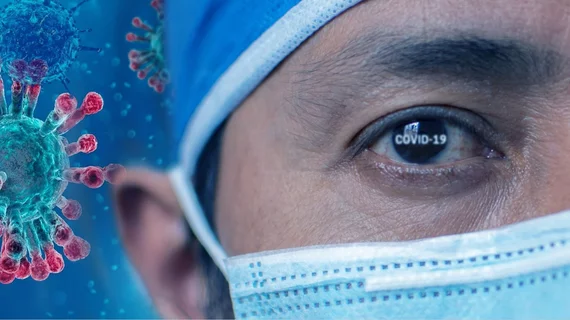Health system launches ‘second opinion’ AI for diagnosing COVID-19 in chest scans
Mount Sinai Health System is harnessing the power of artificial intelligence to help analyze lung scans in patients situated at the heart of the United States’ COVID-19 outbreak.
According to the New York City-based institution, they are the first in the country to combine AI with imaging and clinical data to evaluate patients suffering from the disease. Their algorithm is based on more than 900 scans, and can quickly detect signs of the new virus by analyzing lung disease information in CT scans.
Although computed tomography is not a recommended first-line approach for diagnosing patients, the algorithm, along with other important clinical data, can certainly serve as a supplement in certain imaging situations, said Zahi Fayad, PhD, director of the BioMedical Engineering and Imaging Institute at Mount Sinai.
“The high sensitivity of our AI model can provide a 'second opinion' to physicians in cases where CT is either negative (in the early course of infection) or shows nonspecific findings, which can be common,” added Fayad, an author of the May 19 study published in Nature Medicine. “It's something that should be considered on a wider scale, especially in the United States, where currently we have more spare capacity for CT scanning than in labs for genetic tests.”
The researchers gathered CT scans from partners in China, covering 18 medical centers between January 17 and March 3. Patients’ clinical information—such as blood test results, age, sex, and symptoms—was also included. In total, the AI was trained and calibrated on 626 individuals and tested on the remaining 279.
Fayad and colleagues created their algorithm to mimic physicians’ workflow and offer up a final positive or negative diagnostic prediction.
Results showed the AI offers a “statistically significantly higher” sensitivity compared to human radiologists for analyzing the images and clinical information (84% versus 75%). The new tech also bolstered the detection of disease-positive individuals who yielded negative CT scans.
Improving detection is certainly important, the authors noted, given that some patients don’t show abnormalities on CT scans and because COVID-19 symptoms are wide-ranging and difficult to diagnose.
“We were able to show that the AI model was as accurate as an experienced radiologist in diagnosing the disease, and even better in some cases where there was no clear sign of lung disease on CT," Fayad added. "We're now working on how to use this at home and share our findings with others—this toolkit can easily be deployed worldwide to other hospitals, either online or integrated into their own systems."

